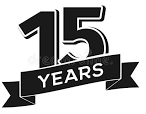ঔপনিবেশিক কালপর্বে বাংলা সাহিত্য প্রকাশনার জগতে লিঙ্গরাজনীতি
Volume-XII, Issue-III, April 2024
Volume-XII, Issue-III, April 2024 | ||
Published Online: 30.04.2024 | Page No: 09-17 | |||
ঔপনিবেশিক
কালপর্বে বাংলা সাহিত্য প্রকাশনার জগতে লিঙ্গরাজনীতি
প্রিয়াঙ্কা মণ্ডল, এম.ফিল, ইতিহাস বিভাগ, ডায়মণ্ড হারবার
মহিলা বিশ্ববিদ্যালয়, সরিষা, দঃ চব্বিশ পরগণা, ভারত। | |
Gender Politics in the World of Bengali Literary Publication during the Colonial Period Priyanka Mondal, M.Phil., Department of History, Diamond Harbour Women’s University, Sarisha, South 24 Parganas, India. | |
The main discussing point of the proposed article is the gender politics that emerged in the publication of Bengali women’s writings in the colonial period. In the second half of the 19th century, the spread of women’s education and the advancement of the printing industry created a category of women readers in Antahpur (the inner domain of the household). Similarly, from that category, a new section was also originated—they were named ‘Lekhika’ or ‘female author’. They expressed their thoughts and opinions about the position of women on contemporary socio-economic and political grounds. However, a major portion of patriarchal society could not welcome such authors with open mind. Because male-dominated societies have always wanted to confine women’s thinking within the limits of their own set of rules. The discussion of logic or political or economic issues in women’s writings was unexpected. Rather, society expected women’s writings to be ‘feminine’ in line with the so-called socially constructed trait of ‘softness’. In this way the male society has repeatedly interfered with in independent deliberation of women in several ways. In short, the voice of Indian women in history is suppressed through gender discrimination in the area of writings. On this point, the article fundamentally asks the questions whether the contemporary readers acclaimed the writings of Bengali women, how the patriarchs reacted on these or in which ways women had to face problems to publish their writings in periodicals. | |
Keywords: Gender Politics, Female Authors, Colonial Bengal, Periodicals, Patriarchy. | |



